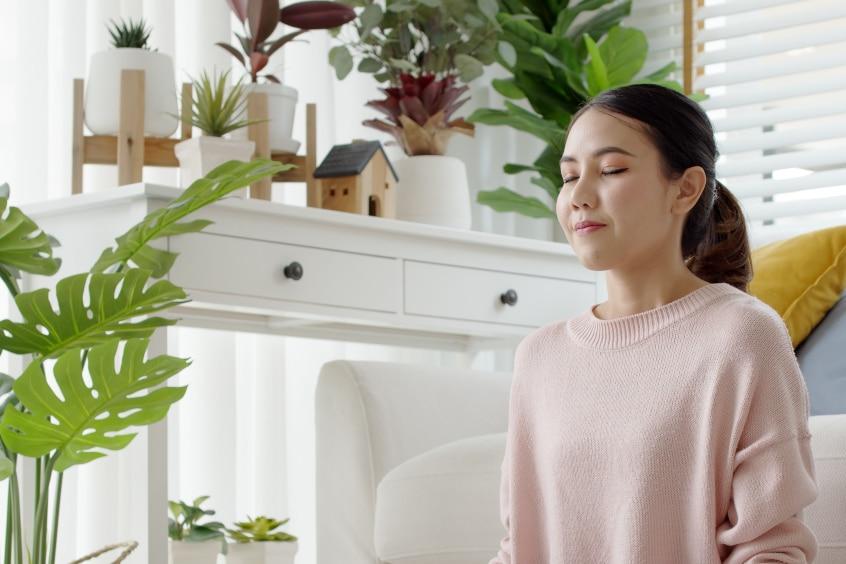
Introduction: The importance of mental health and self-care
Mental health is a vital aspect of our well-being, yet it often takes a backseat in the hustle and bustle of everyday life. We juggle responsibilities, face challenges, and sometimes forget to prioritize self-care. But what if there was an easy way to boost your mental state? Enter hobbies—a simple yet powerful tool for enhancing your emotional wellness.
Learning something new can transform not just your skills but also your outlook on life. Whether it’s painting, gardening, or learning a musical instrument, engaging in hobbies offers an escape from stress while providing countless benefits for your mental health. Let’s dive into how picking up a new hobby can be one of the best decisions you make for yourself today!

What is a hobby and why is it beneficial for mental health?
A hobby is an activity you engage in for pleasure and relaxation. It’s something that sparks joy and lets your mind wander away from daily stresses.
Engaging in a hobby can provide a much-needed escape. Whether it’s painting, gardening, or playing an instrument, these activities allow you to unplug from the chaos of life. This break can be refreshing.
Hobbies also stimulate mental processes. They keep your brain active and engaged, which is crucial for emotional well-being. The thrill of learning something new ignites curiosity and passion.
Additionally, hobbies create opportunities for mindfulness. When you’re focused on creating or exploring something new, it helps anchor you in the present moment—reducing anxiety about past or future worries.
In essence, dedicating time to a hobby nurtures both creativity and peace within yourself.
The link between hobbies and stress reduction
Engaging in hobbies has a remarkable way of alleviating stress. They provide an escape from the daily grind, allowing your mind to shift focus and recharge.
When you immerse yourself in activities you enjoy, it creates a sense of flow. This state pulls you away from worries and anxieties, replacing them with joy and fulfillment.
Hobbies also encourage mindfulness. Whether it’s painting, gardening, or playing an instrument, these pursuits demand your attention fully. This presence can significantly lower cortisol levels—the hormone associated with stress.
Furthermore, dedicating time to something enjoyable fosters relaxation. It acts as a buffer against life’s pressures and helps maintain mental clarity amidst chaos.
Incorporating hobbies into your routine nurtures emotional well-being while promoting resilience against stressors that come your way.
Hobbies as a form of self-expression and creativity
Hobbies serve as a powerful outlet for self-expression. They allow individuals to showcase their unique perspectives and emotions in ways that words often cannot capture.
Engaging in creative activities, whether it’s painting, writing, or crafting, lets your inner thoughts flow freely. Each brushstroke or written word reflects personal experiences and feelings.
This form of expression can be incredibly therapeutic. It provides an escape from daily stressors while offering insights into one’s own mind. The act of creating something meaningful fosters a deeper connection to oneself.
Moreover, hobbies encourage experimentation without the fear of judgment. You’re free to explore various styles and methods until you find what resonates most with you. This journey enhances creativity and nurtures individuality.
Embracing hobbies enriches your life by allowing you to communicate who you are at your core through tangible creations.
Boosting self-esteem through learning new skills
Learning new skills can be a powerful way to boost self-esteem. Each time you tackle something unfamiliar, you challenge your limits and expand your capabilities. This process is rewarding.
When you master a new skill, no matter how small, it brings a sense of accomplishment. You recognize that effort leads to progress, which reinforces your self-worth.
Hobbies often provide immediate feedback. Whether it’s crafting or playing an instrument, seeing tangible results from your efforts fosters pride in what you’ve created or learned.
Moreover, the journey of learning itself can shift negative thought patterns. Instead of focusing on limitations, you’re immersed in growth and exploration.
With each new hobby pursued, confidence builds layer by layer. The more skills you acquire, the more empowered you feel about tackling other challenges in life as well.

Social benefits of engaging in group hobbies
Engaging in group hobbies opens doors to new friendships and connections. When people share a common interest, conversations flow naturally. This shared passion fosters an environment where bonds can grow.
Collaboration is another key benefit. Working together towards a common goal—be it painting, hiking, or gardening—creates a sense of unity among participants. These moments cultivate teamwork skills that are transferable to other areas of life.
Group activities also provide emotional support. Being part of a community allows individuals to express their feelings without judgment. This connection often leads to increased resilience during tough times.
Moreover, participating in group hobbies can enhance motivation. The encouragement from others helps you push through challenges and stick with your new pursuit longer than you might alone. It’s not just about the hobby itself; it’s about sharing joy and experiences with like-minded individuals along the way.
How to choose the right hobby for you
Choosing the right hobby can feel overwhelming, but it should be an enjoyable exploration. Start by reflecting on your interests and passions. What activities make you lose track of time?
Consider your personality type. Are you more introverted or extroverted? This will guide you toward solitary hobbies like painting or group activities such as team sports.
Next, think about practical aspects. Do you have the space for a new hobby? Can you afford any necessary materials or classes? Balancing passion with practicality is key.
Experimentation is essential. Try out different hobbies without pressure to commit immediately; attend workshops, join clubs, or simply dabble at home. Each experience will teach you something valuable about yourself.
Trust your instincts. The right hobby should bring joy and relaxation into your life, not stress or frustration.
Incorporating your hobby into your daily routine for a consistent positive impact on mental health
Incorporating your hobby into your daily routine can significantly enhance its positive effects on mental health. Start by setting aside dedicated time for your chosen activity. This could be as simple as 30 minutes a day or a few hours each week, depending on what fits into your schedule.
Consistency is key. When you make time for something enjoyable, it becomes a part of who you are and offers moments of joy amid life’s chaos. Whether it’s painting, gardening, playing an instrument, or practicing yoga, engaging in these activities regularly helps to create stability and balance.
Consider blending your hobby with other routines. For instance, listen to music while cooking or practice drawing during lunch breaks at work. This not only enhances the experience but also ensures that self-care doesn’t take a backseat in busy times.
Don’t forget to track your progress over time! Keeping a journal or sharing updates online can add another layer of fulfillment to your hobby journey. Celebrate milestones and accomplishments along the way; they serve as reminders of how far you’ve come.
Making room for hobbies nurtures mental well-being and fosters resilience against stressors life throws our way. Embrace this opportunity to explore new interests while prioritizing self-care—your mind will thank you later.




Leave a Reply